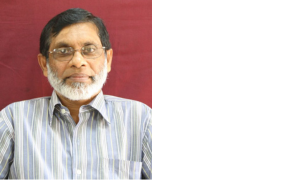
Feb 07 2024.
views 157By Prof. J.M.P.K. Jayasinghe
6 pm, Thursday 15th February, 2024, Cinema Lounge, BMICH

Wetlands are areas of land that are permanently or seasonally inundated with fresh, brackish, or saline water and comprise a range of plant and animal species that are adapted to the degree of inundation, the type of water that is present, as well as the soil conditions. Flood storage, sediment control, water quality improvement, preventing shoreline erosion and protection, providing habitats for plants, fish and wildlife, acting as Biodiversity Reservoirs, and serving as breeding, nursery and feeding grounds for aquatic organisms are some of the main ecological functions. Human-use values include flood protection, storm Protection, nutrient transformation, removal and storage, non-consumptive recreation, commercial Fishery and aquaculture.
Reclamation of wetlands for other uses without understanding the functioning of coastal ecosystems and the ecological services they provide has resulted in environmental degradation, pollution, depletion of natural resources, reduction in biodiversity, and social conflicts depriving communities of their access and traditional sustainable resource extraction patterns.
Coastal wetlands with mangroves, mangrove associates, saltmarshes, mudflats, and seagrass beds, are the most threatened wetland areas in Sri Lanka due to high land demand for urbanization, agriculture, aquaculture, tourism, salterns and other industrial development.
Rapid expansion in coastal aquaculture poses a major threat to wetlands reducing the area of sensitive ecosystems and releasing partially treated effluents to lagoons, estuaries and nearshore coastal areas.
Join us at the NTB WNPS Lecture to gain insights into the urgent need for conservation efforts to protect these vulnerable ecosystems from the detrimental impacts of industrial development and aquaculture expansion.
Prof. J.M.P.K. Jayasinghe is an accomplished biologist, holding a PhD in coastal aquaculture from the University of Stirling, UK. With 19 years at Sri Lanka's National Aquatic Resources Agency, he rose to Director and Head roles. Since 2002, he's been Chair Professor at Wayamba University, contributing as Chair, Senior Professor, and Dean. As an Emeritus Professor, he focuses on aquaculture and fisheries, emphasizing curriculum development, research, and program implementation. With 38 publications, 300 abstracts, six books, and twelve book chapters, his work spans health and environmental management in shrimp culture, fisheries impacts, and combating climate change in aquaculture. A key figure in regional programs, Prof. Jayasinghe continues to shape fisheries education in Sri Lanka.
The WNPS Monthly Lecture is supported by the Nations Trust Bank and is open to public, free of charge.
Pics courtesy: WNPS
0 Comments